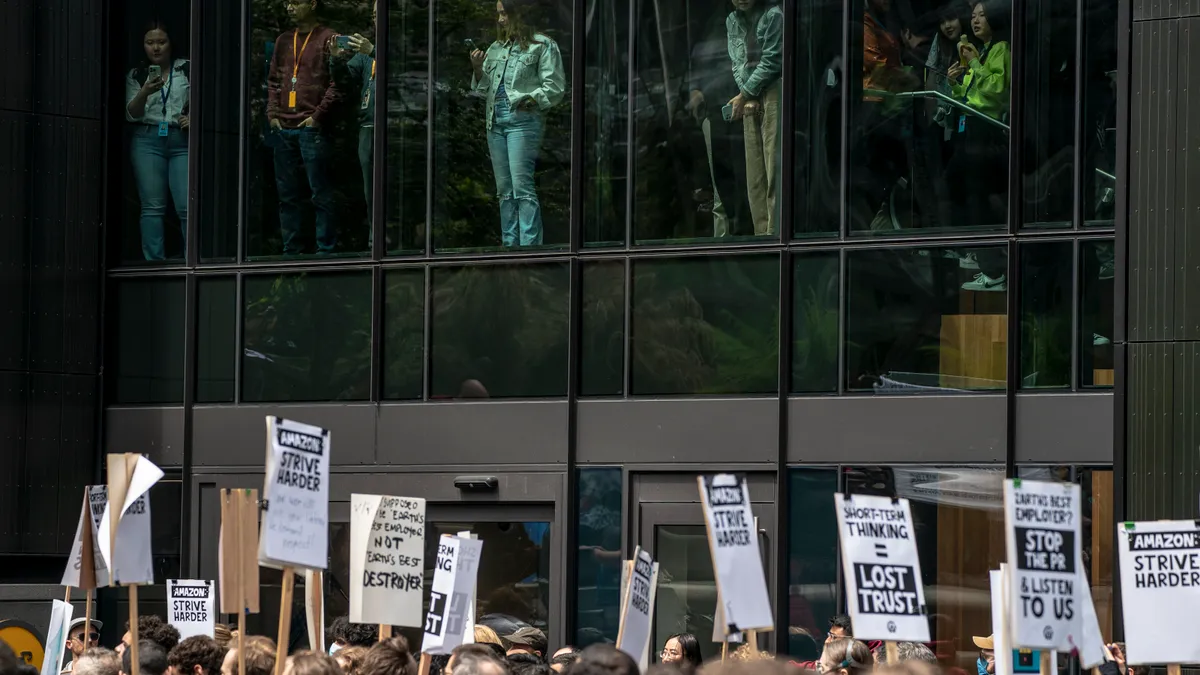Dive Brief:
- In its revised Strategic Enforcement Plan (SEP) for Fiscal Years 2017-2021, the Equal Employment Opportunity Commission (EEOC) has said it will add two areas of concern — "complex employment relationships" (like temp. workers and contractors) and "backlash discrimination" (including that which is directed against Muslims) — to its Emerging and Developing Issues, per an EEOC statement.
- The updated SEP will also expand its efforts to combat pay discrimination beyond the gender pay gap, extending such protections to all workers, including those subject to compensation disparities due to race, ethnicity, disability or any basis.
- Overall, the EEOC's statement lists seven substantive priorities for the 2017-2021 period. In addition to addressing the above three issues, the list includes keeping the legal system accessible as well as preventing systemic harassment.
Dive Insight:
The EEOC has decided to tackle two of the biggest issues surrounding employment in recent years. On one side, businesses and organizations have struggled to clear up the legal gray areas concerning workers in an otherwise flourishing gig economy.
Ride-hailing service Uber, in particular, has experienced legal ups and downs, in one case successfully defending their right to background check drivers in California while losing out on a settlement over reimbursement damages in another.
On the other side, discrimination in many forms has harmed workplace culture and productivity. The EEOC's emphasis on defending certain ethnic groups, including Muslim and immigrant workers, is timely given a tense political climate surrounding both the admittance of refugees and cultural sensitivity in the workplace. Pay discrimination between genders has also persisted in spite of a slow attempt by organizations to correct it.
At the very least, HR leaders should familiarize themselves with the topics discussed in the revised SEP. It's a good primer for what's to come in the realm of employment law.















